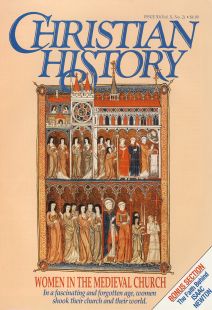Voices of the Mystics
God, of your goodness, give me yourself; for you are sufficient for me. I cannot properly ask anything less, to be worthy of you. If I were to ask less, I should always be in want. In you alone do I have all.
. . . I saw that he [our Lord] is everything that we know to be good and helpful. In his love he clothes us, enfolds and embraces us; that tender love completely surrounds us, never to leave us . . .
Julian of Norwich
(c. 1342–after 1413)
Love penetrates the senses and storms the soul with all its power. When love grows in the soul, then it rises up with great longing to God and flowingly expands to receive the miracle that breaks in upon it. Love melts through the soul and into the senses. And so the body too gains its part and conforms in all ways to love.
Mechtild of Magdeburg
(c. 1212–1282)
Blessed may you be, my Lord, my god, and my Love most beloved of my soul: O you who are one God in three Persons. . . .
Blessed may you be, my Lord Jesus Christ. By your precious blood and by your most sacred death, you redeemed souls and mercifully led them back from the exile to eternal life. . . .
My Lord Jesus Christ, you truly are the head of all men and angels, the worthy King of kings and Lord of lords; and you do all your works out of true and ineffable charity. You humbly permitted your blessed head to be crowned witha crown of thorns. Blessed, therefore, be your head and hair; and may they be gloriously adorned with an imperial diadem. May heaven and earth and sea and all things created be subject and obedient to your empire and your power unto eternity. Amen.
Birgitta of Sweden
(c. 1303–1373)
By the Editors
[Christian History originally published this article in Christian History Issue #30 in 1991]
Next articles
The Mystics
Why did mysticism flower in the medieval world—and why did women often lead in it?
Elizabeth Alvilda PetroffWomen in the Medieval Church: Recommended Resources
Resources for women in the medieval church.
the EditorsThe Faith Behind the Famous: Isaac Newton
He has been called “the greatest scientific genius the world has known.” Yet he spent less time on science than on theology.
Charles E. HummelSupport us
Christian History Institute (CHI) is a non-profit Pennsylvania corporation founded in 1982. Your donations support the continuation of this ministry
Donate



